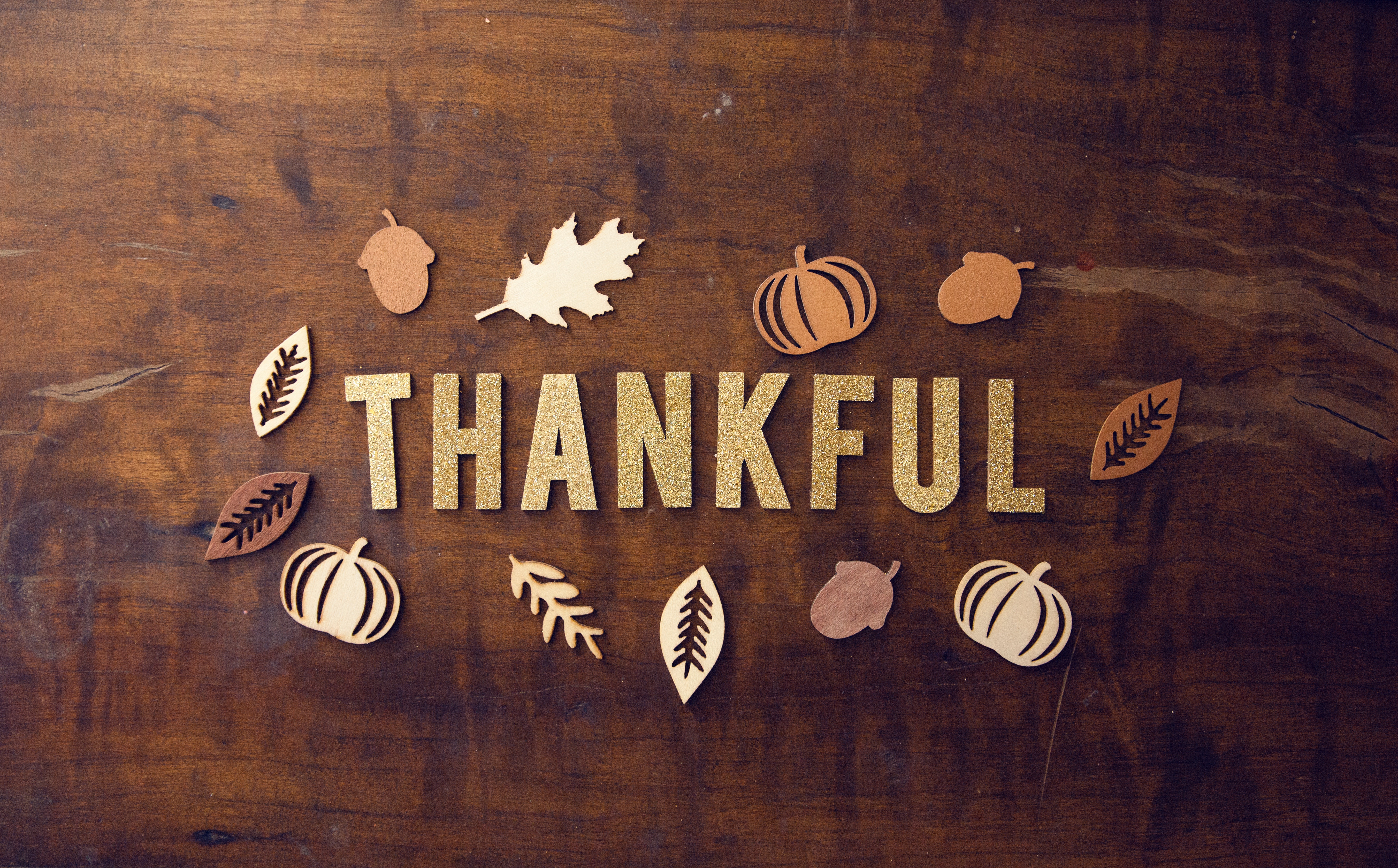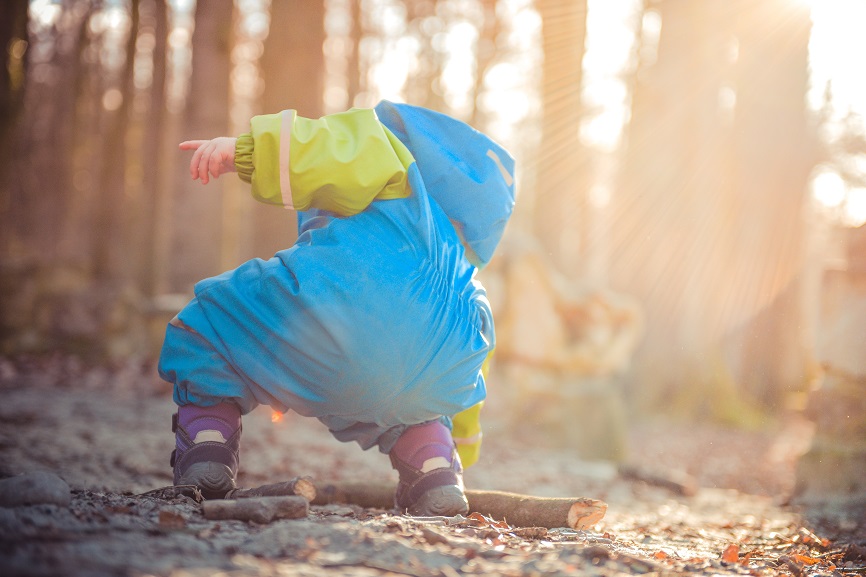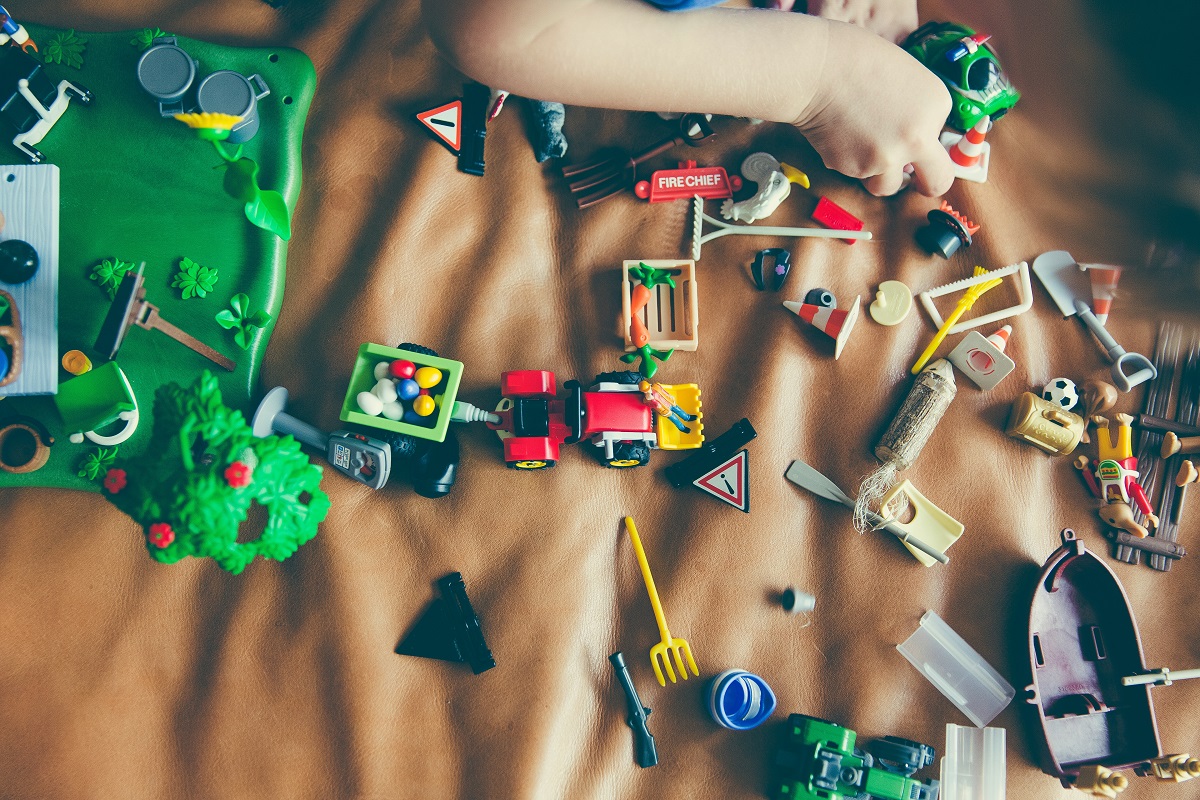How to Help Kids Understand Gratitude & Thanksgiving.

Our kids are still very young -- 2 and 4 years old -- and teaching manners, gratitude and appreciation is a constant task in the back of my mind. We’ve been practicing please and thank you since they were infants and could only sort of make the sign language signs for those words, but even 3.5 years later, I have to remind my older daughter to say them to the grocery store cashier that gives her a sticker, to her grandparents when she gets gifts, and even to me and my husband when we do a small thing like get her more milk. I find myself saying “manners, please” multiple times a day, and I feel like a nag saying it, but I don’t want to be the parent that has ungrateful or unappreciative kids, either.
When they get gifts, I want them to be excited and hold the thoughtful gesture close to their hearts like I do when I get special gifts, but they also have the attention span of a goldfish right now, and likely won’t play with the gift for more than 10 minutes before tossing it aside into the abyss of the toy bin, never to be touched again (that is, until the other one wants to play with it).
So how do we ensure that our kids are appreciative and grateful, and not just because we tell them to be?

These articles from Huffington post outline tips for helping your kids understand gratitude and thankfulness as we approach Thanksgiving this year.
11 tips for instilling true gratitude in your kids
10 ways to teach kids gratitude this Thanksgiving
Some of my favorite tips from these articles are:
Model grateful behavior. When your kids do something you appreciate, like sharing with their sibling or cleaning up their toys, express your gratitude and set an example for them. Kids are prone to modeling our behavior, so use that for good (..to offset that time they said a four letter word loudly in Target. Where did they learn that?!).
- Help kids understand that gifts are thoughtful gestures, not them hitting the jackpot. Maybe they don’t love the hand-knit sweater from Grandma Fern, but explaining that it was lovingly knit by their grandma who wants to help them stay warm this winter can help in getting kids to understand that people do things because they care, and that is a special thing.
- Let kids help out. Giving kids age-appropriate chores around the house can help them realize that it takes a lot of work for them to have a clean, warm home to live in. They will also feel satisfaction knowing that they made a valuable contribution to the family’s well being.

- Name your blessings. Having your kids name things for which they are thankful on a daily basis will help them appreciate the small things in their lives that make them happy, feel good or help them succeed. Sure, at first they might be most thankful for their Paw Patrol figurines, but over time, they will likely think deeper about what things make them the happiest. Plus, hearing their parents say what makes them thankful will likely make them more excited to participate, too.
- Resist the urge to shower them with too much “stuff.” This one is a tough one to follow, because most parents want to give their kids things that will make them happy or excited, even if they haven’t done anything to earn it or it’s not a gift-giving holiday. But, as the article states, “buying kids whatever they want, whenever they want, dilutes the gratitude impulse and it can mean that they don’t learn to value or respect their possessions.” Resist the urge to buy that new stuffed animal because they are throwing a fit in the Target aisle, and help them see that they won’t always get their every desire.
- Encourage them to give back. It feels good to help others, and even if kids don’t understand it right away, starting at a young age will help them show service to others while also appreciating all of the things they do have in the long run.
- Look for teachable moments. Connecting the concept of gratitude with a real life experience helps cement it in the minds of kids. Use those moments in day-to-day life as teachable moments to help them understand that using manners and appreciating others is not only polite, but also makes people happy and shows gratitude.

